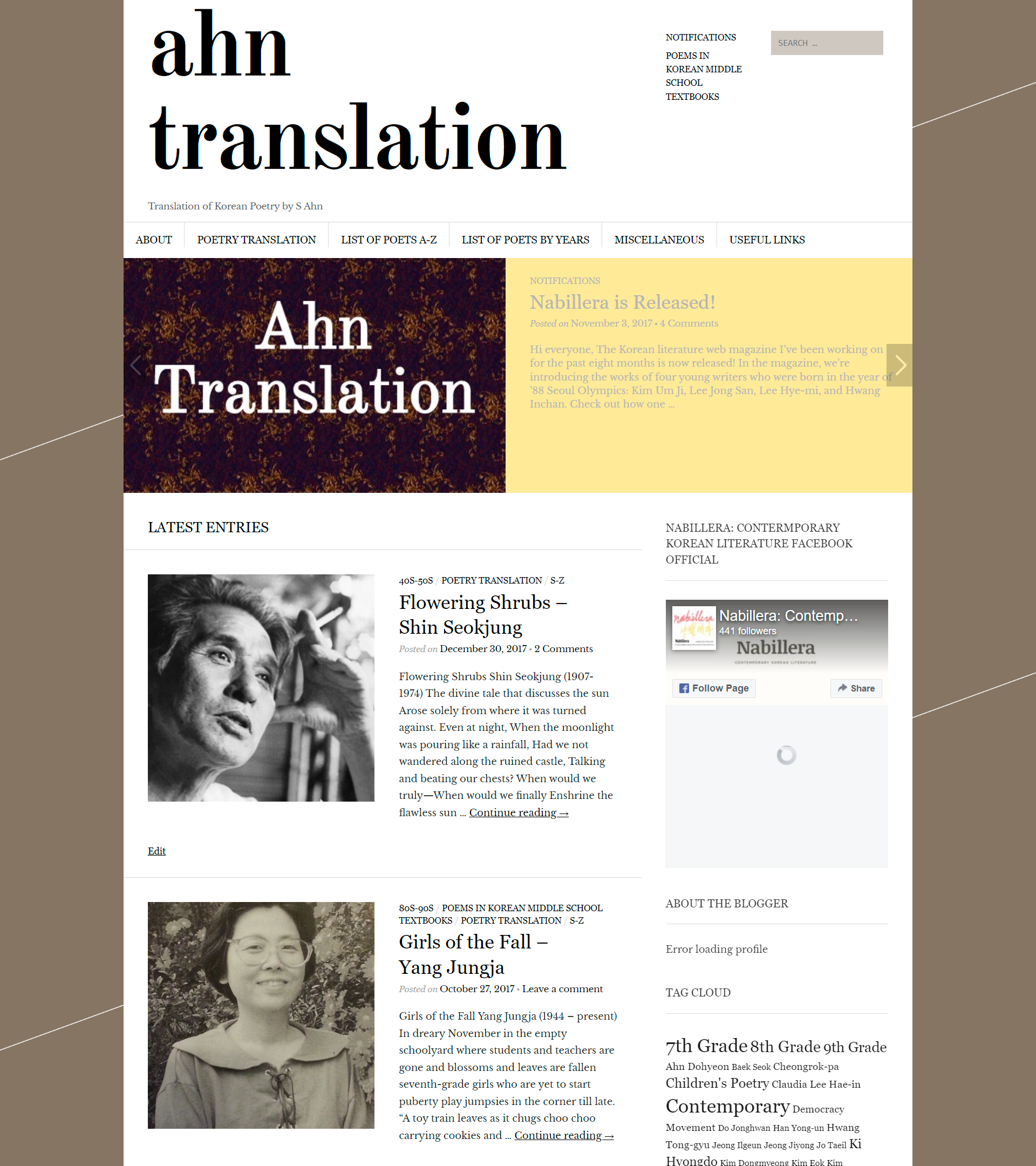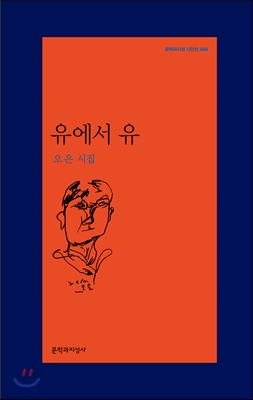



I have translated contemporary Korean poetry for fun. Growing up, I had a deep appreciation of creative writing and Korean literature from the early- and mid-20th century. In 2014, I decided to combine these interests and translate Korean poetry. This journey started out on AhnTranslation, which still attracts a significant number of viewers all over the world.
Since then, I have translated for multiple projects, such as Humans of Seoul (a street interview series) and Time to Read Poems (an award-winning documentary). Moreover, my translations have also appeared in an IB textbook, city government event, online journal, and academic publications and presentations. In December 2016, I launched Nabillera: Contemporary Korean Literature, hoping to introduce novel attempts in the Korean literary circle to English readers. I published five issues as editor-in-chief until I started graduate school in the fall of 2019.
In addition, in June 2022, Kim Hyun’s Glory Hole, translated by Archana Madhavan and me, was published through the Seagull Books. The book has gotten great reviews from literary scholars and reviews, including Poetry Foundation and Asymptote. Currently, I am finishing the translation of From Being to Being (tentative title) by Oh Eun, which will be published by Black Ocean Press.
To those who are curious, here are some of my thoughts on literary translation:
Q: What do you like about literary translation?
A: I love it when language and imagery disintegrate, making one feel the texture of the language in its roughest state. As much as I am devoted to reason and clarity in my academic work and honesty and productivity in my professional life, I indulge in this peaceful destructiveness in the artistic sphere. After all, this is what arts—including literary arts—provide us.
Q: What is a good literary translation?
A: While literary translation is a creative and artistic act that navigates the difference between languages, the finest translation can be attained only when a translator truthfully translates the original work. And by “truthfully,” I do not mean a strict adherence to literal or liberal translation. Rather, the objective must be to reenact an author’s intention and readers’ experience when reading the original work. In experimental poems, this might require literal translation, which novice literary translators avoid like the plague. Conversely, there are circumstances where a translator must take the lead and translate liberally, recognizing the need to sacrifice some linguistic elements in poetry. A good translator knows when to choose liberal or literal translation and what and how to sacrifice.